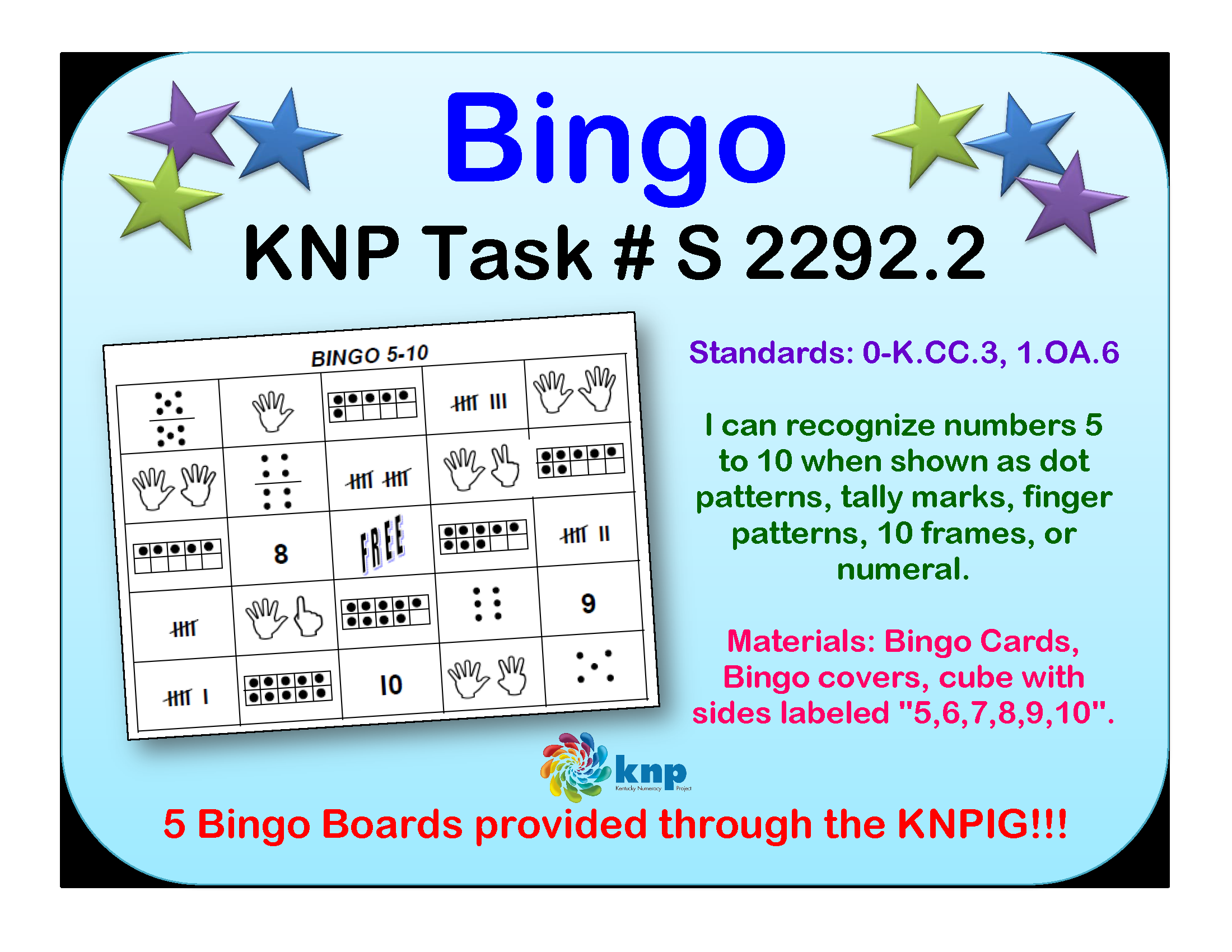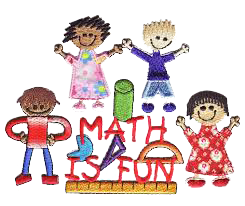“Bingo (five to ten)”
KNPIG ID #S 2292.2
What's this activity about?
Everybody loves bingo! This game will challenge your child to recognize numbers in different forms while playing a fun game of bingo. The board is composed of different forms of the numbers two through ten and you and your child will try to match five in a row to get bingo. It won’t be hard to get your child to play this engaging activity. Have fun!
What materials do we need?
Numeral cube customized with the numerals- 5, 6, 7, 8, 9, 10
Bingo Boards, (only four to print)
Bingo markers
Follow this link to a virtual die you can customize with the numerals- 5, 6, 7, 8, 9, 10: http://www.bgfl.org/bgfl/custom/resources_ftp/client_ftp/ks1/maths/dice/index.htm

How do we play?
After each player chooses a bingo card, the first player rolls the numeral cube, or the virtual die. Each player checks to see if the number rolled is on his/her bingo card. If the number is in more than one square, each player decides which square should be covered. Only one square can be covered each turn. The second player will roll the dot die and the game continues until one of the players has covered four corners and a line (horizontal, diagonal or vertical).
Where’s the Math?
There is a lot of math that goes along with what your children are learning in school. Children are learning how to instantly recognize how many are in a group. This game helps children form mental pictures of numbers so they realize they can be formed in many different ways. Children are also learning to count by grouping, instead of one-by-one. Recognizing the quantity in groups of things under ten will help them move forward in structuring numbers in addition and subtraction problems. This also gives children a good mathematical base in number sense and seeing how larger numbers are composed of groups of smaller values.
Things to Think About:
As you use this activity with kids, remember to be patient. Sometimes it’s hard not to help them along if they are having a hard time finding matches. There may be a lot of guessing at first, but if they continue notice where they are struggling and work in extra practice with those concepts in your everyday life.
If your child struggles with recognizing the numerals, ask for help when you are reading a phone number or looking at a receipt from a store. Kids love helping and will usually try harder when they believe they are doing something nice for their family. If he/she has trouble instantly recognizing the quantity in a group, you could ask them for quick help counting items in a grocery cart or the number of items in your hand. As he/she becomes more proficient with counting these small groups, encourage him/her to go quicker by flashing a group in your hand and see if he/she can get it without counting one-by-one.
Feedback
Send us your thoughts and ideas about these activities. Email the KCM

